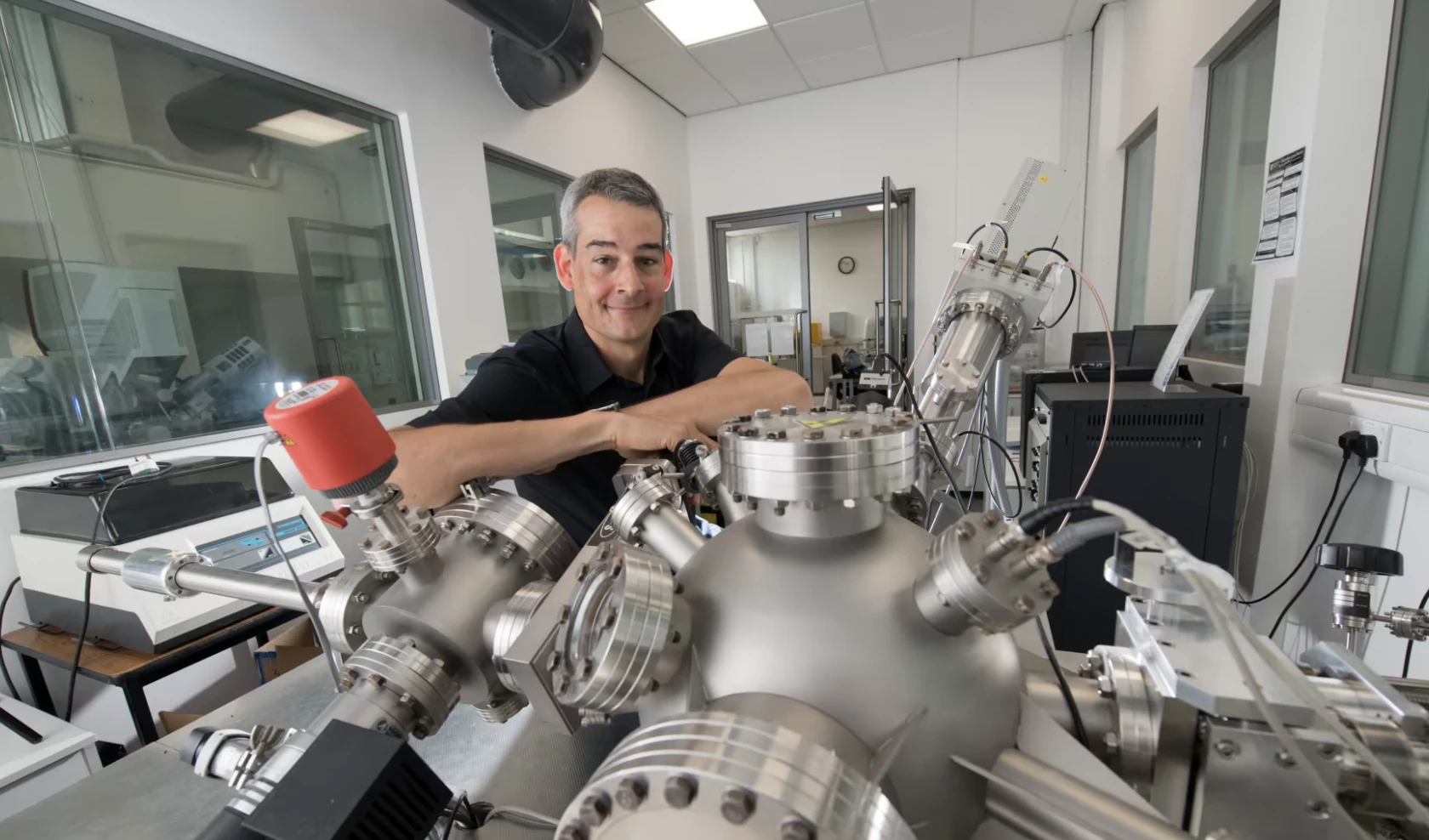
Northumbria secures £1m investment in research facilities from the Wolfson Foundation
An award of £1m to support the expansion of engineering and surface science research facilities at Northumbria University has been announced today by the Wolfson Foundation.
Centred around the University’s existing Materials Characterisation Suite, the investment forms part of a £3m package which will transform and upgrade laboratory facilities at City Campus in the heart of Newcastle upon Tyne, dedicated to the analysis and development of materials used in the renewable energy, healthcare, biomaterials and engineering sectors.
New state-of-the art equipment to support this scientific research will allow high resolution nano and microscopic imaging, and sensitive three-dimensional chemical mapping across longer ranges and parameters than is currently achievable. The Wolfson Foundation is an independent grant-making charity with an emphasis on education and research which provides funding for projects across the UK.
The new technology will complement other facilities available within the region’s universities while providing a unique concentration of advanced equipment available in one location. The facility will support the research of more than 100 academic staff and students annually.
Among the specific equipment funded by the award is a focused ion beam scanning electron microscope for the preparation and high-resolution imaging of samples, and a secondary ion mass spectrometer to probe the chemical information of inorganic materials.
Areas of research excellence already being undertaken using the Materials Characterisation Suite include thin film photovoltaic technologies for terrestrial and space applications, and coatings for more durable medical implants and prosthetics. Professor Guillaume Zoppi, whose research specialises in photovoltaic materials used to absorb sunlight and generate electricity, led the funding proposal.
“This investment will allow us to upgrade or replace a number of key pieces of technology which will not only be crucial to engineering research but will also have varied and important applications for our specialists in geography and environmental studies, health and life sciences, and many others,” explained professor Zoppi.
“This is an important development in our research journey and will open up further opportunities for collaborations to ensure we can continue developing solutions for the future.”
Professor Guillaume Zoppi led the funding proposal which will allow Northumbria University to upgrade or replace a number of key pieces of technology. The boost to research facilities follows a multi-million pound investment in Northumbria’s Thin Film Laboratory, Microelectronics and Communications Laboratory and the Power Electronics and Space Laboratories in recent years.
Professor Andy Long, vice-chancellor and chief executive of Northumbria University, said: “Over the last decade, Northumbria has transformed into a research-intensive university with a focus on changing lives and unlocking potential for all.”
Professor John Woodward, faculty pro vice-chancellor for Engineering and Environment, said: “We are excited that the Wolfson Foundation has been able to support the development of this important new resource for the North East of England at Northumbria.”
Paul Ramsbottom, chief executive of the Wolfson Foundation said: “Northumbria is putting in place an impressive range of equipment to help design the advanced materials of tomorrow materials which can drive innovation in energy efficiency, carbon capture and healthcare, among other fields.”
By Mark Adair – Correspondent, Bdaily
- Add me on LinkedIn and Twitter to keep up to date
- And follow Bdaily on Facebook, Twitter and LinkedIn
- Submit press releases to editor@bdaily.co.uk for consideration.
Looking to promote your product/service to SME businesses in your region? Find out how Bdaily can help →
Enjoy the read? Get Bdaily delivered.
Sign up to receive our daily bulletin, sent to your inbox, for free.








 £100,000 milestone drives forward STEM work
£100,000 milestone drives forward STEM work
 Restoring confidence for the economic road ahead
Restoring confidence for the economic road ahead
 Ready to scale? Buy-and-build offers opportunity
Ready to scale? Buy-and-build offers opportunity
 When will our regional economy grow?
When will our regional economy grow?
 Creating a thriving North East construction sector
Creating a thriving North East construction sector
 Why investors are still backing the North East
Why investors are still backing the North East
 Time to stop risking Britain’s family businesses
Time to stop risking Britain’s family businesses
 A year of growth, collaboration and impact
A year of growth, collaboration and impact
 2000 reasons for North East business positivity
2000 reasons for North East business positivity
 How to make your growth strategy deliver in 2026
How to make your growth strategy deliver in 2026
 Powering a new wave of regional screen indies
Powering a new wave of regional screen indies
 A new year and a new outlook for property scene
A new year and a new outlook for property scene